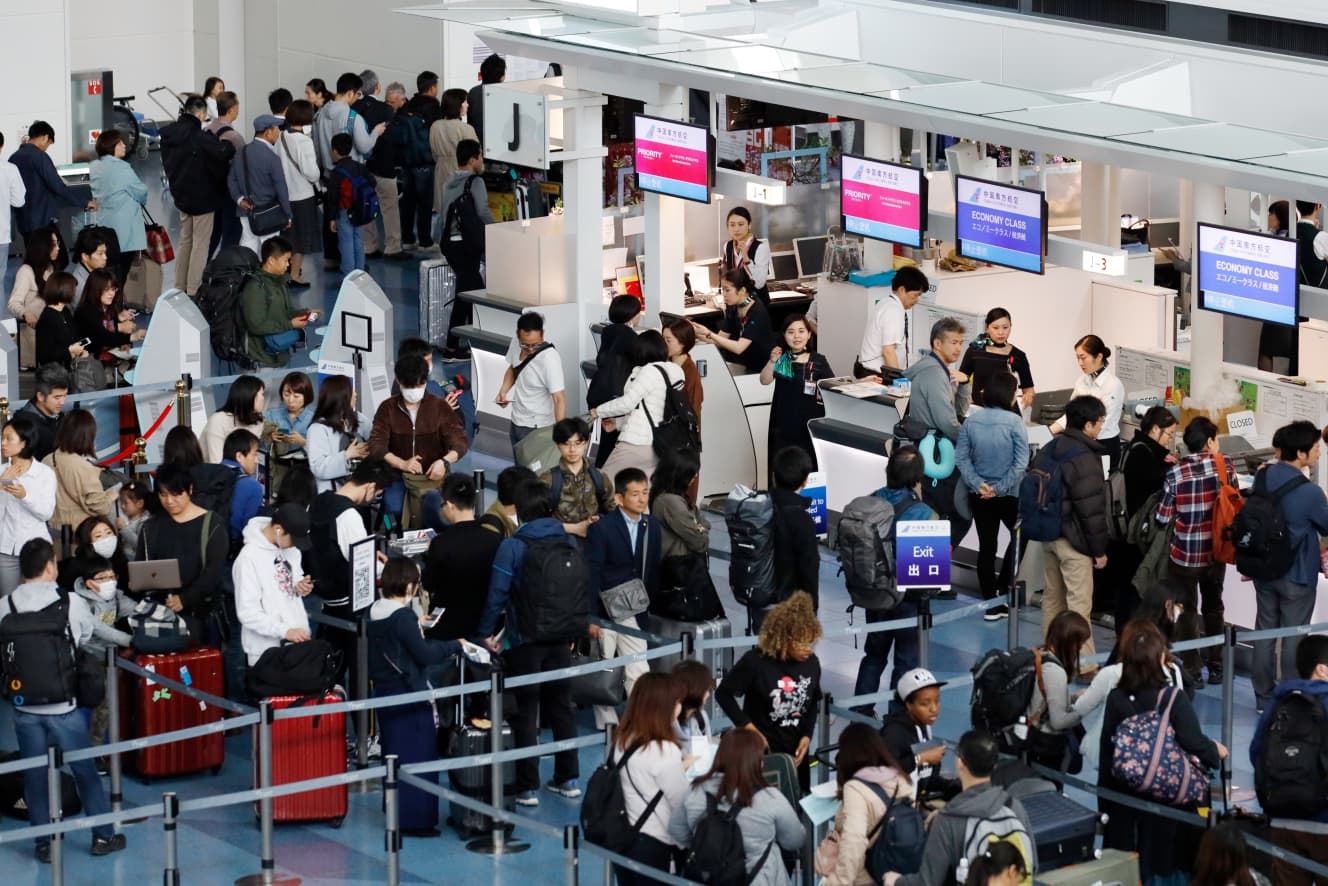The Ministry of Foreign Affairs of Japan: Serious Accidents While Traveling Abroad and How to Protect Yourself
Not all is as it seems… The latest “travel troubles” from the Ministry of Foreign Affairs.
On the night of October 29, an accident occurred in Itaewon, Seoul, South Korea, killing 156 people, including two Japanese, due to crowding caused by Halloween.
In the two and a half years or so that many Japanese have been unable to go abroad due to the new COVID-19 crisis, the environment surrounding international travel, including the local situation, has changed. Local expenses have increased due to the tense situation in Ukraine and the weak yen, and fuel surcharges on airline tickets are at an all-time high.
However, the Corona has not been completely resolved, and other risks, such as warfare and terrorism, lurk in some places. It is necessary to take even stronger measures for “safety” than before the Corona.
We asked the Overseas Japanese Nationals Safety Division of the Consular Affairs Bureau of the Ministry of Foreign Affairs about actual cases of trouble Japanese nationals have encountered, new crimes that have recently occurred, and how to make good use of the Tabiregi-a service that distributes overseas safety information.

Frauds that became more sophisticated with Corona
Since the new Corona, several new scam schemes have been reported.
“One such scam involves an attempt to extort personal information and money by posing as a government official, such as the Ministry of Health, and another is an online scam to solicit donations for prevention measures. These scams continue to be reported in countries around the world.”
Cases of social networking accounts being hijacked when users access a URL in an e-mail thinking it is a vaccination information e-mail from the Ministry of Health, and scams soliciting donations in Bitcoin to support measures against new coronas have been reported in many parts of the world, according to the report. Although there had been such cases in some countries and regions before the COVID-19 crisis, the COVID-19 crisis has made the scams even more sophisticated and calls for further attention.
The situation in Ukraine is having a major impact, and hoaxes are being spread.
The recent situation in Ukraine is also a matter of concern overseas.
The sanctions against Russia have resulted in a series of flight suspensions, and credit card transactions and bank transfers have become impossible. Direct flights to Japan have also been suspended, and if the situation continues to deteriorate, it may become even more difficult to secure seats on international flights.
said an official from the Ministry of Foreign Affairs of Japan. In addition, as a precaution during times of social instability, the following points should be noted.
In times of emergency, false rumors may spread on social networking sites. It is extremely important to secure reliable sources of information.
The Ministry of Foreign Affairs of Japan has issued a “Level 4” risk report for Ukraine, while Russia and Belarus are at “Level 3,” and both countries are at “Level 4” risk near the border with Ukraine.
We urge people to refrain from traveling, for any purpose, not only to Russia and Ukraine, but to any country or region where a Level 3 or Level 4 evacuation advisory has been issued.
Weak Yen May Cause Impoverishment in Local Countries
The recent depreciation of the yen also affects overseas travel. The high cost of living in Japan is not only limited to accommodation and food costs, but also extends to all other areas of life. Emergency transportation to Japan in the event of injury or illness can cost tens of millions of yen, depending on the country or region.
In addition to securing a sufficient budget, it is important to consider purchasing overseas travel insurance in case of emergencies.
Awareness to prevent infection even while traveling abroad and be prepared for delays in returning to your home country
When all persons were required to present a negative certificate to enter Japan, there were many situations in which Japanese who wished to return to Japan and enter the country were infected with corona locally and, although they were recovering after completing medical treatment, continued to test positive in the pre-departure inspection and were unable to return home for a long time. As a result, there was a wave of consultations with the local Japanese embassies and consulates-general, such as, “No matter how many times we test negative, it doesn’t come back negative. The Ministry of Foreign Affairs assisted them in returning home by issuing a consular letter if they could prove that they had recovered after completing medical treatment. Since September 7, 2022, it is no longer necessary to submit a negative certificate when returning to Japan if a vaccination certificate (three times) can be presented, and the number of cases of this consultation has been decreasing.”
However, the risk of new corona infection still remains. In Europe and the U.S. in particular, restrictions on infection prevention have been abolished, and many people do not wear masks.
A Ministry of Foreign Affairs official says, “We would like people to take the same precautions to prevent infection while traveling abroad. At the same time,” he cautions, “If you contract corona while traveling overseas, you may be forced to change your return plans.”

Register for “Tabiregi-” to ensure accurate information, now available on LINE!
The Ministry of Foreign Affairs of Japan encourages people to register for “Tabiregi-register” when traveling abroad or on business trips.
The “Tabiregi-” is an overseas safety information distribution service launched on July 1, 2014, and is mainly intended for short-term travelers who will stay in a foreign country for less than three months (those who have established an address or residence for more than three months are required to submit a notification of residence). Information on travel destinations and emergency responses is sent to the registered e-mail address on a case-by-case basis.
In March 2021, the Consular Bureau of the Ministry of Foreign Affairs (MOFA) started a LINE account, which allows users to register as a friend and easily make changes to their account information.

The author has also registered for Tabi-Regi every time he travels abroad since the beginning: in March 2019, when the mosque shooting in Christchurch, New Zealand, occurred, he was staying in a nearby city and received the first news through Tabi-Regi. Immediately after that, the New Zealand border was on high alert, and I went to the airport much earlier than planned when leaving the country. In addition, the new COVID-19 crisis was so severe that I received consular e-mails one after another from countries where I had remained registered all along while my overseas travel was postponed, and being able to obtain local information in Japanese was also useful for my subsequent travel.
Consular e-mails were sent at 3:30 a.m. on October 30 through Tabirezi for the Itaewon Accident.
On the night of October 29, an accident occurred in Itaewon, Seoul, South Korea, killing 156 people, including two Japanese, due to congestion caused by Halloween. The initial response by the local police was delayed, and information about the accident was mixed, and although it was reported on SNS late at night, even many Koreans learned about the accident on the news the next morning. The Japanese Embassy in Korea sent out consular e-mails to those who had registered their residence and “Tabiregi-registration” at 3:30 a.m. on the 30th before dawn, and at around 4:40 a.m. on its official Twitter account.
The Ministry of Foreign Affairs publishes a booklet titled “Overseas Safety Toranomaki” for overseas travelers. It can be obtained at passport centers nationwide, etc., and a PDF version is also available on the web. The booklet contains detailed information on all kinds of trouble cases involving Japanese nationals, and just reading through it will change your awareness of safety. The contents are updated every year, and the information is also up-to-date. We hope you will take all possible safety measures, including reading this booklet and registering with the “Tabiregi-registration” system, to protect yourselves from danger caused by the new COVID-19 crisis.
Ministry of Foreign Affairs of Japan
Tabiregi-Ministry of Foreign Affairs of Japan’s overseas safety information distribution service
Text/Photographs: Shikama Aki (unless otherwise noted)